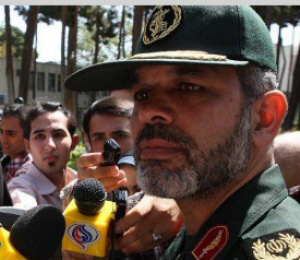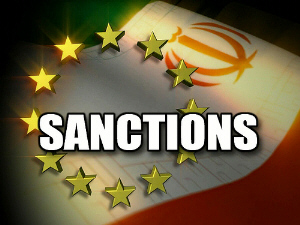Iranian Defense Minister Brigadier General Ahmad Vahidi said Wednesday that Iran has always been after preserving the security of Hormuz Strait.
 Iranian Defense Minister Brigadier General Ahmad Vahidi said Wednesday that Iran has always been after preserving the security of Hormuz Strait.
Iranian Defense Minister Brigadier General Ahmad Vahidi said Wednesday that Iran has always been after preserving the security of Hormuz Strait.
He told reporters after a cabinet meeting that presence of foreign forces in the Persian Gulf is destructive.
On Tuesday, Army Commander Brigadier General Ataollah Salehi speaking on the sidelines of the Velayat-90 military drill in Chahbahar, recommended US Navy sailing out of Hormuz Strait not to come back again.
Pointing to the role of the Iranian Armed Forces in protecting the strategic Hormuz Strait, Vahidi said the presence of foreign forces in the region only made situation in the region chaotic.
The defense minister said the IRGC naval forces are scheduled to hold another military drill in the region in the near future.
He also expressed Iran’s readiness to hold joint maneuver with neighboring countries.
 Commenting on Velayat-90 military drill, Vahidi said Iran conducted the drill independently and based it on own capabilities, while some observers from Gulf states and other neighboring countries were closely watching it.
Commenting on Velayat-90 military drill, Vahidi said Iran conducted the drill independently and based it on own capabilities, while some observers from Gulf states and other neighboring countries were closely watching it.
For its part, European Union governments have reached a preliminary agreement on an oil embargo against Iran but are debating when it should come into force, EU diplomats said Wednesday.
"There is an agreement in principle to forge ahead" with an oil embargo, a diplomat told media sources, but added "there is still a lot of work" to agree on the timing of its implementation for a meeting of foreign ministers on January 30.
"We are working on this (embargo) and things are on track," French Foreign Minister Alain Juppe said, addressing a press conference in Lisbon with Portuguese counterpart Paolo Portas.
EU governments are now negotiating when the embargo should affect existing contracts between Iran and European companies, the diplomats said.
Oil from Iran in 2010 amounted to 5.8 percent of total EU imports, making Tehran the bloc's fifth-largest supplier after Russia, Norway, Libya and Saudi Arabia.
In response to the threat of new sanctions, Iran has warned it could close the Strait of Hormuz, through which 20 percent of the world's oil is shipped.